Reishi and Lion's Mane are two potent medicinal mushrooms with unique benefits. Reishi, also known as the "Mushroom of Immortality," is celebrated for its immune-boosting, anti-cancer properties, and ability to reduce stress and promote sleep. On the other hand, Lion's Mane, often called the "Brain Booster," is known for enhancing cognitive functions, supporting the nervous system, and relieving mood swings and anxiety.
While both are beneficial, choosing Reishi or Lion's Mane depends on your health goals. Moreover, consulting a healthcare provider can help you decide between Lion's Mane vs. Reishi.
These distinctive mushrooms have been used for centuries in traditional Chinese and Japanese medicines, and they're gaining increasing attention in the Western world for their potential health benefits. With much scientific research backing their medicinal qualities, Reishi and Lion's Mane have grown popular as dietary supplements. But how do they differ, and how do you decide which one might suit your needs?
In this article, we aim to give you a comprehensive understanding of these two great mushrooms. We'll delve into their respective histories, benefits, supported scientific claims, and how to consume them best.
By the end, you should clearly grasp whether Reishi or Lion's Mane (or perhaps both!) should find a place in your health regimen. Read on to unravel the mysteries of these remarkable fungi.
The Origins of Medicinal Mushrooms
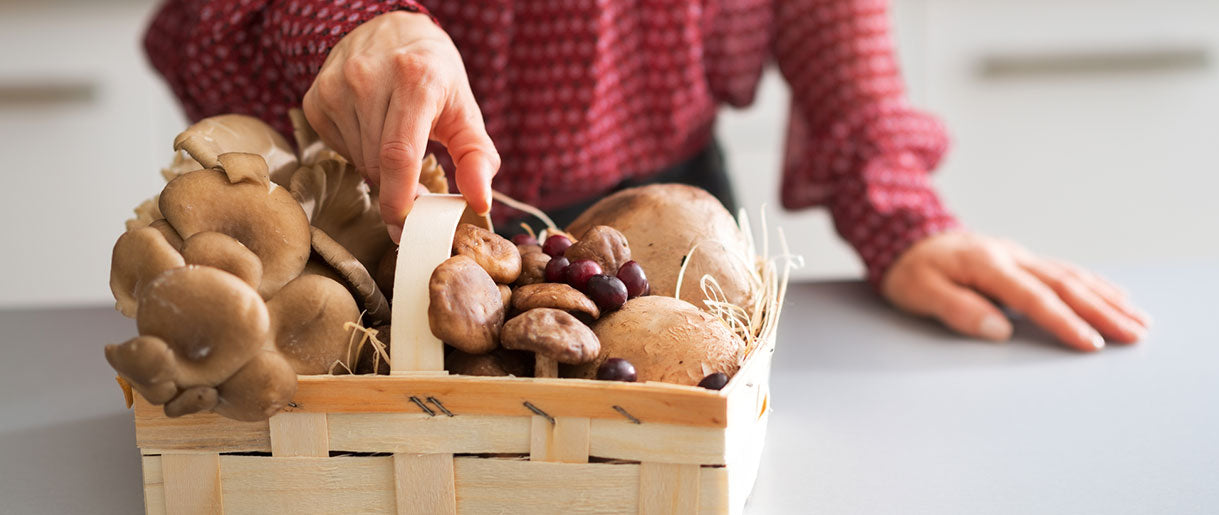
The world of medicinal mushrooms is as ancient as it is intriguing. While today these fungi are praised for their health-boosting properties, their use dates back thousands of years.
Before the terms 'superfood mushrooms' or 'medicinal mushrooms' were coined, our ancestors were already well acquainted with their healing powers, enjoying the numerous benefits of medicinal mushrooms.
A Journey Through Time: Medicinal Mushrooms and Traditional Healing
Among the notable mushrooms in the medicinal mushroom family are Lion's Mane and Reishi, known scientifically as Hericium erinaceus and Ganoderma lucidum, respectively. Their history within traditional Chinese and Japanese medicine offers a fascinating insight into the rich heritage of medicinal mushrooms.
Reishi, or Ganoderma lucidum, has been a cornerstone in traditional Chinese medicine for over 2000 years. Revered for its circular fan-shaped patterns and hard, varnished appearance, it was often associated with immortality and spiritual potency. Predominantly found growing on hardwood stumps and logs, Reishi was traditionally harvested from the wild, although now it's primarily cultivated.
Lion's Mane, on the other hand, is notable for its unique cascading, icicle-like appearance. Traditionally found on hardwoods, particularly birch trees, this edible mushroom has been consumed for centuries in Asia due to its medicinal benefits. Today, Lion's Mane is one of the best mushrooms for brain health.
Medicinal Mushrooms Beyond the Orient
The use of medicinal mushrooms isn't confined to the East. Medicinal mushroom use spans cultures worldwide, with historical accounts in Europe, Russia, and the Americas.
However, it's important to note that not all fungi termed 'magic mushrooms' relate to psychoactive species. Instead, they refer to those with potent health benefits, like Reishi (Ganoderma Lucidum) and Lion's Mane. Furthermore, Lion's Mane and Reishi mushrooms are not psychedelic, meaning that while they may be called "magic mushrooms," the term's literal meaning does not apply to them.
Present-Day Popularity of Lion's Mane and Reishi
In contemporary times, the acclaim of medicinal mushrooms has grown exponentially. The likes of Reishi and Lion's Mane have gained considerable popularity as a part of wellness routines. In addition, these superfood mushrooms are now extensively researched, with many studies affirming their numerous health benefits, thus further solidifying their place in the medicinal mushroom family.
Overall, the story of medicinal mushrooms, particularly Lion's Mane and Reishi, is a testament to their enduring value throughout history and their significant potential for modern-day health.
Reishi Mushrooms: The Mushroom of Immortality
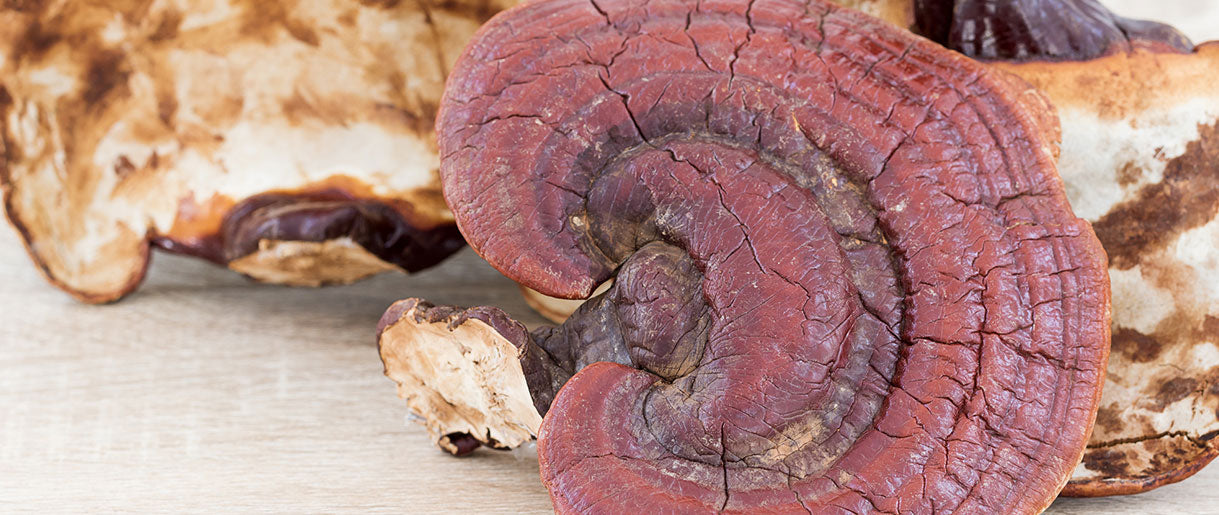
Reishi mushrooms, known scientifically as Ganoderma lucidum, are fungi that grow on dead or decaying trees in warm, humid environments. Often recognized by their glossy exterior and unique kidney shape, Reishi mushrooms have earned the nickname "Mushroom of Immortality" due to their health benefits.
Top Benefits of Reishi Mushrooms
Fortifying Immunity: The Power of Reishi
One of the primary benefits of Reishi mushrooms lies in their remarkable ability to support the immune system. Research shows that(1) these mushrooms are rich in naturally occurring compounds that enhance immune function by stimulating the activity of white blood cells. In addition, they stimulate the activity of natural killer cells, which play a critical role in the body's defense against cancer cells and infections.
Reishi's Anti-Cancer Potential
Beyond bolstering immune function, Reishi mushrooms are increasingly being studied(2) for their anti-cancer properties. Certain compounds in Reishi appear to have the potential to slow the growth of cancer cells. One study(3), in particular, showed promising results in suppressing the growth and invasiveness of colorectal cancer cells, confirming Reishi's cancer benefits.
A Soothing Influence: Reishi's Role in Stress Management and Sleep Support
Reishi mushrooms also exhibit potential benefits in managing stress and improving sleep quality. For example, its anti-inflammatory properties might help alleviate chronic inflammation often linked with poor sleep quality and stress. Moreover, some preliminary studies(4) have suggested that Reishi can reduce anxiety and depression, contributing to better sleep and overall wellness.
The Science Behind the Mushroom of Immortality
Numerous scientific studies have supported these potential benefits of Reishi mushrooms. These studies have shown that Reishi mushrooms can positively influence various internal body systems, from enhancing immune function to fighting cancer cells. Furthermore, Reishi's potential role in mitigating risk factors associated with heart disease, such as high blood pressure and high cholesterol, has also been the subject of recent research.
Incorporating Reishi into Your Wellness Regime
As for how to use Reishi mushrooms, they are most commonly consumed in the form of tea or as a supplement in powder or capsule form. The suggested dosage varies depending on the form, so it's always best to follow the recommended dosage on the product label or consult a healthcare provider.
Lion's Mane Mushrooms: A Deep Dive into the Brain Booster
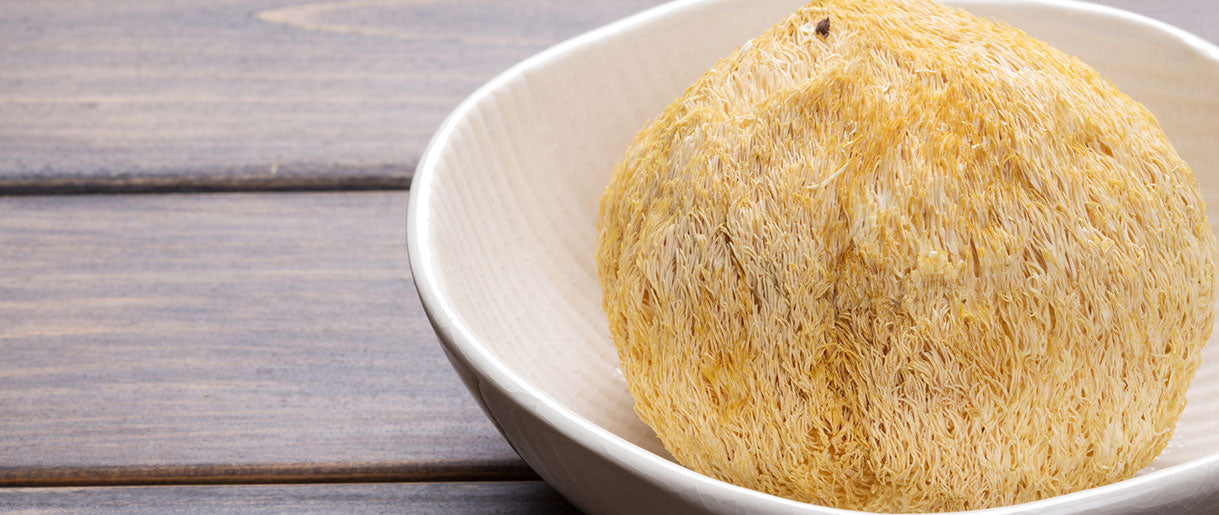
Lion's Mane mushrooms, known scientifically as Hericium erinaceus, have an impressive reputation within the world of medicinal fungi. Noted for their unique, cascading shape resembling a lion's hairy Mane, these mushrooms are famous for their potent brain-boosting abilities and overall neuroprotective properties.
Health Benefits of Lion's Mane Mushrooms
The Cognitive Edge: Lion's Mane and Brain Health
The key benefits of Lion's Mane mushrooms primarily center on cognitive enhancement and support for brain health—this fantastic fungus is one of the few with a direct impact on brain function due to its ability to stimulate the production(5) of nerve growth factor. This natural compound is critical for maintaining and improving cognitive function, thus substantially boosting cognitive health and mental clarity.
Nervous System Support: A Neural Lifeline
Beyond cognitive support, Lion's Mane mushrooms also show promise in maintaining the health of the nervous system. For example, several studies have found that(6) compounds within Lion's Mane can help regenerate nerve cells, which could offer potential benefits for neurodegenerative diseases like Alzheimer's disease.
A Mood Enhancer: Lion's Mane Role in Anxiety and Stress Response
Interestingly, Lion's Mane provides anxiety relief and may boost your mood. Research shows that(7) by modulating the body's stress response, this mushroom could aid in managing mood disorders. In addition, its antioxidant activity further contributes to its medicinal values, reducing inflammation and promoting overall mental wellness.
Backing the Brain Booster: Science and Lion's Mane
The medicinal benefits of Lion's Mane mushrooms are more than anecdotal; scientific studies back them. Research has shown that taking Lion's Mane can improve cognitive function and may even slow the progression of Alzheimer's disease. Other studies(8) point toward its positive effects on mood and anxiety.
Unleashing Lion's Mane: How to Use
As for how to use Lion's Mane mushrooms, they can be consumed in several ways. First, you can cook and eat the mushrooms, but they're also available in supplement form, such as capsules and powders. Dosage often depends on the form of the Lion's Mane product you're using, so be sure to follow package instructions or seek advice from a healthcare professional.
Lion's Mane vs. Reishi: The Health Benefits Showdown
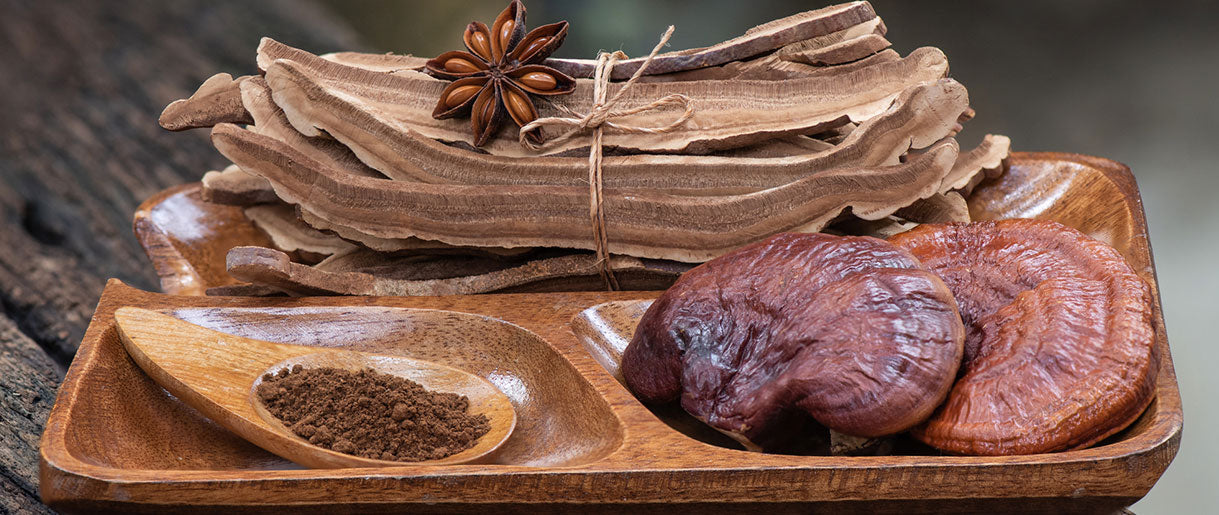
When comparing the health benefits of Reishi and Lion's Mane mushrooms, it becomes clear that each has its unique strengths.
For example, Reishi mushroom, known for its high concentration of Reishi polysaccharides and anti-inflammatory effects, is renowned for bolstering the immune system. It achieves this by stimulating the activity of white blood cells, including natural killer cells, which play a critical role in the body's defense mechanisms.
On the other hand, Lion's Mane mushroom is highly revered for its potent cognitive enhancement properties. Lion's Mane extracts have been found to stimulate the production of nerve growth factors, resulting in a significant increase in cognitive function and mental clarity.
The Mushroom Menu: Usage and Consumption Differences
The way you incorporate these mushrooms into your routine also differs. Considering that the Reishi mushroom taste is bitter, Reishi mushroom is rarely consumed as a food. Instead, reishi supplements are more commonly used, available as a mushroom powder, capsules, or a tincture.
Lion's Mane mushroom, on the other hand, is frequently harvested and eaten as food due to its seafood-like flavor. However, like Reishi, Lion's Mane extract can also be taken as a mushroom supplement for convenience.
A Mushroom Match: Choosing Between Reishi and Lion's Mane
Consider your health goals to decide which mushroom might suit your needs better. For example, suppose you're seeking general health support, particularly for your immune system, heart health, or even potential anti-cancer properties. In that case, Reishi mushroom, with its many health benefits, could be the better choice. It has also been studied for its ability to lower blood sugar and its potential anti-aging properties.
Conversely, if cognitive health is your main concern, Lion's Mane mushroom could be a more fitting choice. Not only does it help improve cognitive function, but it also shows the potential to slow the progression of neurodegenerative diseases like Alzheimer's.
However, the beauty of these medicinal mushrooms lies in their compatibility. They can be used together as complementary supplements, offering many benefits for your overall well-being.
Prudent Precautions: Staying Safe When Using Lion's Mane And Reishi

Suppliers and Safety: Only Choose the Best
When diving into the world of medicinal mushrooms, there are general precautions that need to be remembered. First, mushroom supplements should be sourced from reliable and reputable suppliers.
Due to the growing popularity of these natural health boosters, the market has been flooded with an array of products, not all of which may meet the quality standards. Therefore, purchasing your mushroom supplements from well-established health food stores or trusted online platforms is advisable.
Reishi Repercussions: Potential Side Effects of Reishi Extracts
Moving on to the potential side effects of individual mushrooms, let's start with Reishi. Most people can tolerate Reishi extracts well, especially as powdered supplements.
However, some individuals may experience digestive upset, skin rashes, or allergic reactions. In rare cases, long-term use of Reishi may also cause liver damage. Therefore, sticking to the recommended Reishi mushroom dosage and consulting a healthcare professional before starting any new supplement regimen is crucial.
Lion's Mane Maneuvers: Side Effects to Be Aware of
On the other hand, Lion's Mane mushroom is generally considered safe with few reported side effects. Some people, however, may experience mild digestive discomfort when first using Lion's Mane. Rarely, an allergic reaction may occur, characterized by skin rash, difficulty breathing, or rapid heartbeat.
FAQs About Reishi vs. Lion's Mane
What Is Better, Lion's Mane Or Reishi?
Determining whether Lion's Mane or Reishi is "better" depends mainly on your specific health goals, as each medicinal mushroom has unique strengths.
Reishi mushrooms are known for their immune-boosting properties. For example, they help enhance the activity of white blood cells, potentially benefiting those who want to enhance their immune function, have heart health concerns, or are seeking anti-cancer properties.
On the other hand, Lion's Mane mushrooms are revered for their impact on brain health. They stimulate the production of nerve growth factors, which support cognitive function and mental clarity. Therefore, Lion's Mane may be a better option for those seeking to improve their cognitive health or those dealing with neurodegenerative diseases.
In many cases, these two mushrooms can be used in conjunction to reap a broader spectrum of benefits. However, consulting a healthcare provider before starting any new supplement regimen is essential.
Can You Take Lion's Mane Every Day?
Lion's Mane mushrooms are generally considered safe for daily use. For this reason, many people incorporate them into their daily routine, often as a supplement, to support cognitive function, mental clarity, and overall brain health.
However, as with any supplement, adhering to the recommended Lion's Mane dosage is essential. Additionally, some individuals might experience mild digestive discomfort or an allergic reaction. So if any adverse effects occur, it's recommended to discontinue use and consult with a healthcare provider.
Who Should Not Take Lion's Mane Mushroom?
While Lion's Mane mushrooms are generally safe for most people, there are certain situations where their use should be avoided or carefully monitored:
- Pregnancy and Breastfeeding: There's not enough research on the effects of Lion's Mane mushrooms during pregnancy or breastfeeding. As a safety measure, it's often recommended that women in these categories avoid use.
- Allergy or Sensitivity: If you have an allergy or sensitivity to mushrooms, you should avoid Lion's Mane. Symptoms could include skin rashes, difficulty breathing, or rapid heartbeat.
- Bleeding Disorders or Upcoming Surgery: Lion's Mane might slow blood clotting, increasing the risk of bruising or bleeding in people with bleeding disorders or those about to undergo surgery.
- Diabetes: Lion's Mane mushroom might lower blood sugar levels, potentially interfering with blood sugar control in people with diabetes.
- Autoimmune Diseases: Since Lion's Mane can potentially boost the immune system, it could cause issues in individuals with conditions like multiple sclerosis (MS), lupus (systemic lupus erythematosus, SLE), rheumatoid arthritis (RA), or other autoimmune diseases.
- Interactions with Other Medications: Like other supplements, Lion's Mane could interact with medications, such as those for diabetes or anticoagulants.
It's always best to consult a healthcare provider before starting any new supplement, including Lion's Mane mushroom. They can provide personalized advice based on your health and current medication regimen.
Does Reishi Increase Testosterone?
The relationship between Reishi mushrooms and testosterone is a topic of ongoing research. Some animal studies suggest that certain compounds in Reishi may inhibit the enzyme 5-alpha reductase, which converts testosterone into its more potent form, dihydrotestosterone (DHT). This action could theoretically lead to an increase in the body's testosterone levels.
However, it's important to note that this is based on preliminary animal studies, and more research, particularly in humans, is needed to confirm these effects and their potential implications.
Key Takeaways
In our journey through the world of medicinal mushrooms, we've delved deep into the histories, benefits, and unique properties of two powerful fungi: Reishi and Lion's Mane. We've discovered that while both belong to the medicinal mushroom family, their strengths lie in different areas.
Reishi, also known as Ganoderma Lucidum, shines in the realm of immune support, heart health, and potential anti-cancer properties. This mushroom has earned its place in traditional medicine, particularly in Asia, where it has been used for centuries.
On the other hand, Lion's Mane stands out for its remarkable influence on cognitive function and mental clarity. Researchers are excited by its potential in dealing with neurodegenerative diseases, among other benefits.
However, it's important to remember that choosing between these two isn't necessarily a competition. Instead, each of these mushrooms brings its benefits to the table, and your unique health goals will determine which one might be more suitable for you. You may even find that a combination of both suits your needs best.
Now, we'd love to hear from you! What's your experience with medicinal mushrooms? Do you prefer Reishi or Lion's Mane, or perhaps a different mushroom entirely? Leave a comment below sharing your thoughts and experiences.
References
- Immunomodulatory Effects of Extract of Lingzhi or Reishi Medicinal Mushroom Ganoderma lucidum (Agaricomycetes) Basidiocarps Cultivated on Alternative Substrate, (1)https://pubmed.ncbi.nlm.nih.gov/35997094/
- Ganoderma lucidum (Reishi mushroom) for cancer treatment, (2)https://www.ncbi.nlm.nih.gov/pmc/articles/PMC6353236/
- Ganoderma lucidum fruiting body extracts inhibit colorectal cancer by inducing apoptosis, autophagy, and G0/G1 phase cell cycle arrest in vitro and in vivo, (3)https://www.ncbi.nlm.nih.gov/pmc/articles/PMC7344060/
- Evaluation of Antianxiety Potential of Four Ganoderma (Agaricomycetes) Species from India in Mice, (4)https://pubmed.ncbi.nlm.nih.gov/28008811/
- Neurotrophic properties of the Lion's mane medicinal mushroom, Hericium erinaceus (Higher Basidiomycetes) from Malaysia, (5)https://pubmed.ncbi.nlm.nih.gov/24266378/
- Neuroregenerative potential of lion's mane mushroom, Hericium erinaceus (Bull.: Fr.) Pers. (higher Basidiomycetes), in the treatment of peripheral nerve injury (review), (6)https://pubmed.ncbi.nlm.nih.gov/23510212/
- Therapeutic Potential of Hericium erinaceus for Depressive Disorder, (7)https://www.ncbi.nlm.nih.gov/pmc/articles/PMC6982118/
- Lion’s Mane (Hericium erinaceus) Exerts Anxiolytic Effects in the rTg4510 Tau Mouse Model, (8)https://www.ncbi.nlm.nih.gov/pmc/articles/PMC9312024/




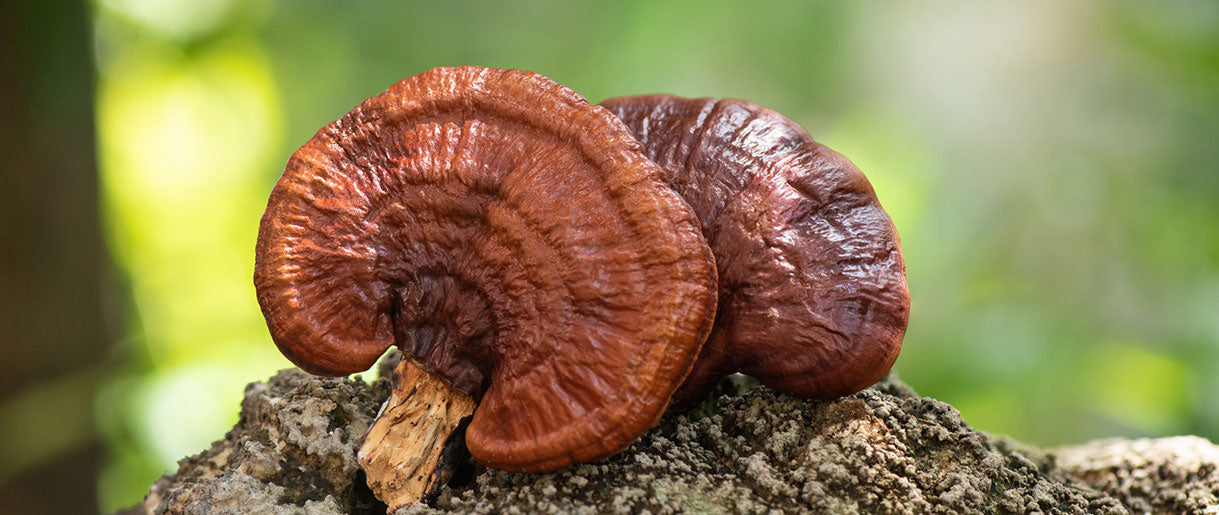



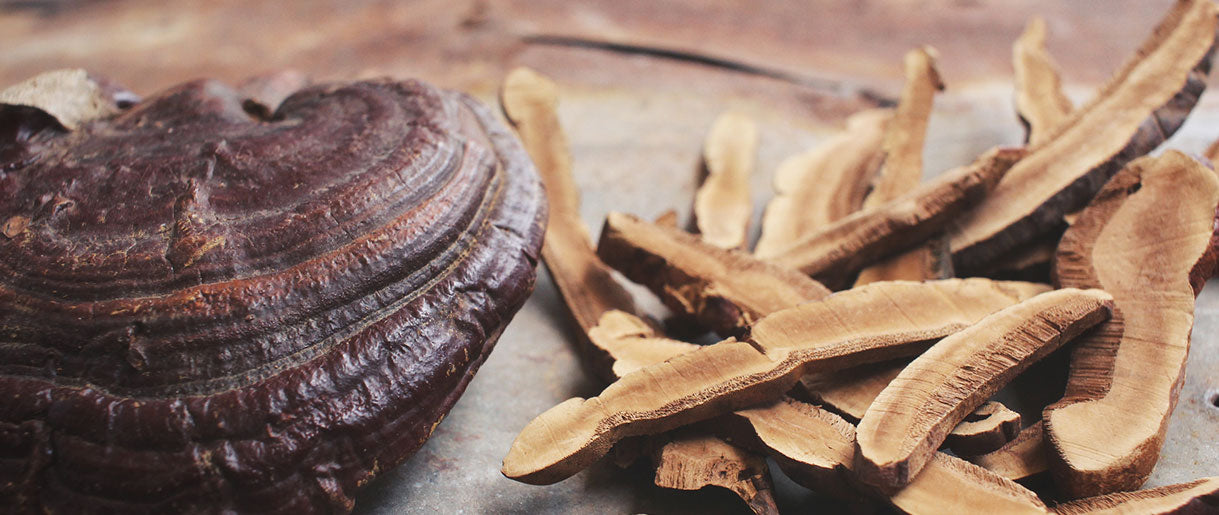
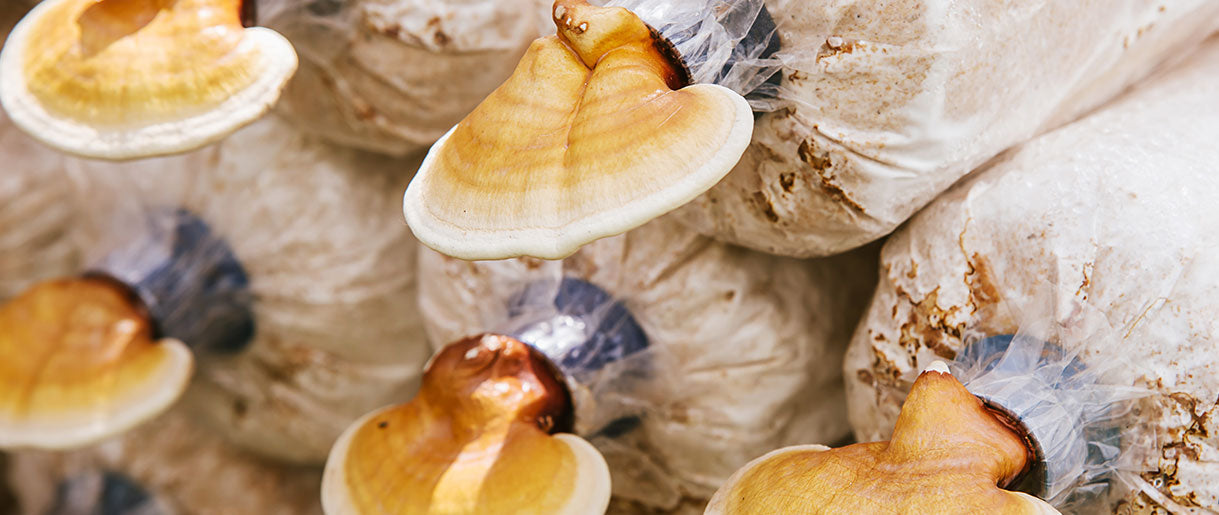
Let Us Know Your Comments